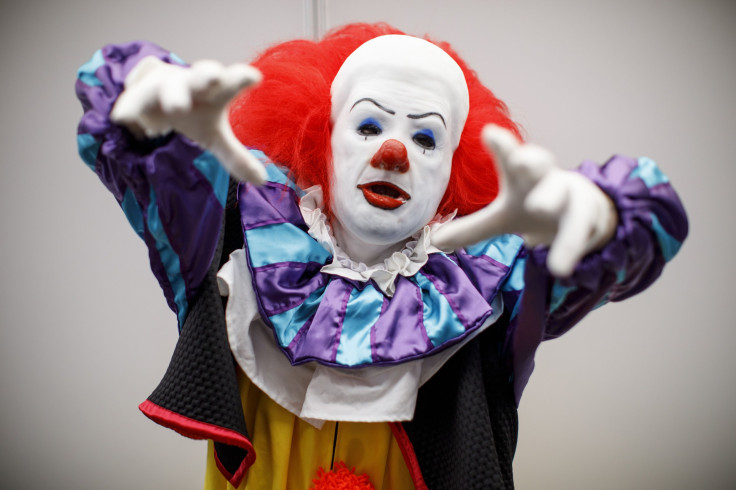Does Playing Creepy Clowns Affect Mental Health? Heath Ledger Warned Against Role

Clowns have maintained a terrifying presence in American popular culture, but the end product can prove to be even more problematic for actors portraying a creepy clown onscreen.
Gizmodo spoke with several psychology experts to determine the long-term mental health problems that could arise from an actor's portrayal of a clown, as with Heath Ledger's portrayal of The Joker. Experts who spoke with the publication said that there is no apparent psychological threat to portraying creepy clowns, but that can be dependant on several factors.
"When Heath Ledger played 'The Dark Knight,' reports claimed that he was consumed by the character," Naomi Hynd, a clinical psychologist in neuropsychology, told Gizmodo. "Over-identification with roles could potentially lead to mental health problems. Roles that are emotionally demanding can impact on the actor and their relationships."
Hynd then claimed that the actor's background could have played a part in the possible mental health repercussions that seemingly followed, such as a history of psychological issues or low-mood, among other factors. If an actor had a negative experience with clowns as a child, Hynd stated this could also bring up difficult feelings and memories.
Ledger maintained a diary that helped him to prepare for The Joker outside of the work setting. Several pictures of clowns were featured in the diary alongside images of jesters and jokers. It also included photographs of Malcolm McDowell as Alex in "A Clockwork Orange."
"I sat around in a hotel room in London for about a month, locked myself away, formed a little diary and experimented with voices," Ledger told Empire in 2007. "It was important to try to find a somewhat iconic voice and laugh. I ended up landing more in the realm of a psychopath."
Ledger died of an overdose in January 2008 in his New York City apartment. Jack Nicholson, who portrayed The Joker before him, told reporters upon hearing the news: "Well, I warned him."
Clowns have gained a stigma for being disturbing characters in their modern iterations, such as with Twisty the Clown from FX's "American Horror Story: Freak Show." However, the big-screen reboot of Stephen King's "It" seemingly cemented the stigma with its classic clown antagonist, Pennywise.
Pennywise is not simply a clown. He has the ability to embody the fears and insecurities of his victims as he sees fit. This proved to be challenging for Bill Skarsgård, who portrayed Pennywise in the "It" reboot.
"I wanted to make something that I would be scared of," Skarsgård told Collider. "An important thing for me in terms of preparing and creating the character was thinking 'What are the things that I would find really unsettling?' And then explore that.'"
"Your own kind of fears and what you find disturbing and amplify that in terms of the performance. Essentially, what you'll end up seeing in the film is my own deepest fears embodied in this character," Skarsgård added.
Coulrophobia, a fear of clowns, isn't a new phenomenon. However, psychologists have determined clowns are associated with fear because of the inability to decipher the emotion on a clown's face, according to the Child Mind Institute. This can prove to be troublesome because it makes it harder to comprehend whether the clown is happy, sad or angry.
Clowns' actions are also often unpredictable, which can cause unease in children. Their overall ambiguity is what causes children — and adults — to equate clowns with fear.
Follow me on Twitter @dory_jackson
© Copyright IBTimes 2025. All rights reserved.






















